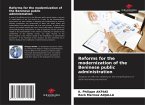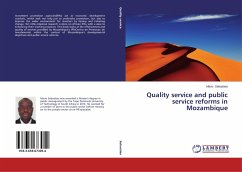Here, corruption in its myriad forms has emerged a major factor inhibiting Jordan's economic development, and inflicting considerable damage upon the social fabric of the country. In particular, the custom of wasta has emerged a deeply embedded form of tolerated corruption. Arguably the prevalent excuse that wasta is grounded in the Jordanian culture, is anachronistic. Moreover, it is unnecessary for the extension of tribal or clan loyalty, nurture and care, for which it is offered an excuse. This book commenced with reference to the wisdom of Adam Smith opining on the impact of lost or diminished confidence in leaders. Jordanians appear to epitomize that situation. Smith might be interpreted as placing government at the hub of the problems of the kind investigated here. Jordan's capacity to, and likely outcome of its, fight to eradicate corruption certainly does appear to rest upon its populace being given good reason for confidence in the justice of [a corrupt free] government.
Bitte wählen Sie Ihr Anliegen aus.
Rechnungen
Retourenschein anfordern
Bestellstatus
Storno








